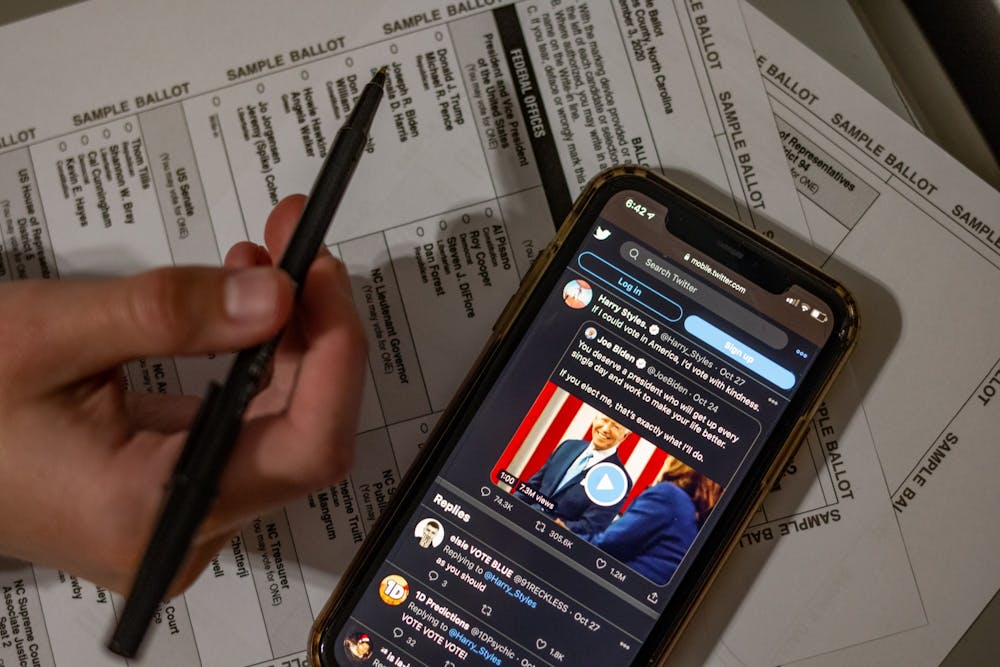Social media exploded when 20-year-old rapper Lil Pump supported President Donald Trump on stage at a rally, raising the question of how much of an impact celebrity endorsements have on the presidential election, especially among young people.
There have been many celebrities showing their support for politicians this year, such as Beyoncé, Lady Gaga, Lil Pump and Ice Cube.
During election season, celebrities endorse political candidates, but the question is, how influential are the influencers?
Ashley Anderson, assistant professor of political science at UNC, said she believes celebrities can have an impact on certain groups, especially low-information voters. She gave Beyoncé as an example a high profile celebrity who could potentially influence voters.
“If you didn't know the candidates' platforms very intimately, these types of high-profile cues could make you think, 'Oh this person is rich enough to be well engaged in the system, maybe she knows more than I do, and so I'm going to trust her endorsement,'" Anderson said.
Anderson said she thinks a voter's likelihood to be influenced politically by celebrity endorsements is not based on age so much as their political interest and knowledge.
"Beyoncé could come out tomorrow and say ‘I support Donald Trump’ and I would say, 'Oh well she's an idiot,'" Anderson said. "Like, I would not follow that endorsement because I know what my ideology is and what my life circumstances are, and that determines who I would vote for.”
Marc Hetherington, a professor of political science at UNC, said he is unsure how much endorsements have an impact on voters because celebrity endorsements are now expected.
He said the public already knows that most of Hollywood is going to support the Democratic nominee, so their opinion might not make much of a difference in the presidential election.



